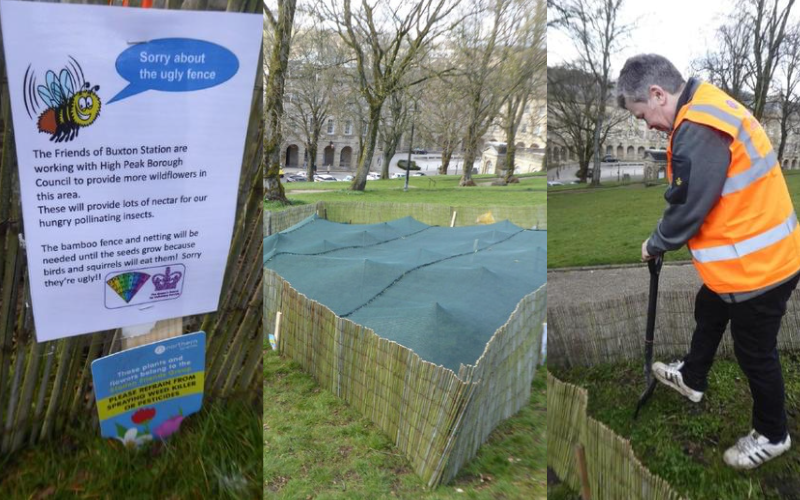
The Friends of Buxton Station (FoBS) have received another award, this time for their work in caring for an endangered species of local bumblebee.
The group have been recognised as one of the 2021 Bees’ Needs Champions, awarded by the Department for Environment, Food & Rural Affairs (DEFRA).
FoBS were named as one of just ten community-based group winners in the local authority and community category for their efforts to support local populations of the rare Bilberry Bumblebee, which is native to the High Peak area.
The Bees’ Needs Champions Awards recognise and celebrate examples of exemplary initiatives undertaken by local authorities, community groups, farmers, and businesses to support pollinators.
Dave Carlisle, chair of FoBS, said: “We have a special little bumblebee living up on nearby moorland and its habitat is threatened by climate change. We did a few things last year to highlight the plight of the Bilberry Bumblebees, but we all need to do more to help our beleaguered bees. We have already started this year’s conservation work by scattering wildflower seeds and publishing an article in our local media – please join in!”
As bees come out of hibernation at the start of Spring, they journey further away from their nests to collect nectar and early pollen to raise and feed their developing colonies of worker bees. FoBS have found that this search has brought the bees into Buxton, including the area around the station, where they have installed planters filled with moorland plants designed to nurture and feed the bees all year round, including bilberry flowers, heather, clover, and bird’s foot trefoil. The planters are accompanied by artwork and information explaining the conservation project and importance of bees’ role in pollination.
One of the ways in which people can support bees is to think about allowing wildflowers to grow before pulling them up as weeds, as Dave explains.
He said: “We are not suggesting folk allow their gardens to become overgrown thistle-strewn wastelands or bramble-filled nettle-runs, but rather to fall in love with a few weeds for a few weeks for the sake of the bees, let them flower to provide food before deadheading to stop seed dispersal.
“And hang fire with the lawn mower, see what grows. If weeds like dandelions are growing where you really can’t tolerate them, dig them out or spot treat with natural products like pelargonic acid. Please don’t spray.”
FoBS have many initiatives lined up to help their local bees once again this year, including more extensive wildflower seed dispersal and more campaigning to raise awareness about the Bilberry Bumblebee. They are also part of the ‘Buzzing Stations’ project, coordinated by the High Peak and Hope Valley Community Rail Partnership, which support station gardens to become bee-friendly habitats.
For more information, visit the FoBS’ Facebook page here.


